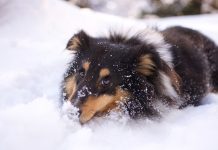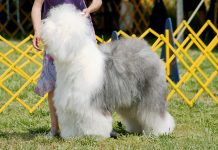History and Origins of the West Highland White Terrier Breed

The West Highland White Terrier, commonly known as the Westie, is a charming and spirited breed with a rich history. Here’s an overview of the history and origins of the West Highland White Terrier:
- Scotland’s Terrier Heritage:
- The West Highland White Terrier hails from Scotland, where it was developed to hunt vermin, particularly rats and other small animals, on farms and estates.
- The breed is closely related to other Scottish terriers, including the Cairn Terrier and Scottish Terrier.
- Development of the Westie:
- The West Highland White Terrier was selectively bred in the 19th century from various terrier breeds in Scotland, particularly the Cairn Terrier.
- The goal was to create a small, sturdy, and efficient terrier with a distinctive white coat that would make it highly visible while hunting in the rugged terrain of the Scottish Highlands.
- Royal Connection:
- The breed gained popularity among Scottish nobility and royalty, including King James VI of Scotland, who was known to have a fondness for white terriers.
- The breed’s association with nobility contributed to its rise in popularity and recognition.
- Recognition as a Breed:
- The West Highland White Terrier was officially recognized as a breed by the Kennel Club in the United Kingdom in 1907, under the name “West Highland White Terrier.”
- Purpose and Working History:
- Originally bred for hunting, the Westie’s skills as a vermin hunter were highly valued. Its small size, sharp senses, and tenacity made it well-suited for rooting out rodents from burrows and dens.
Physical Characteristics and Appearance of West Highland White Terriers
The West Highland White Terrier is a small, sturdy, and well-proportioned dog with distinctive features. Here are the key physical characteristics and appearance traits of West Highland White Terriers:
- Size and Proportion:
- Adult Westies typically stand between 10 to 11 inches (25 to 28 cm) at the shoulder and weigh around 15 to 22 pounds (7 to 10 kg).
- They have a compact and balanced build, with a deep chest and level topline.
- Coat and Color:
- The most striking feature of the Westie is its dense double coat of straight, harsh white hair. The coat is weather-resistant and helps protect the dog from harsh outdoor conditions.
- The coat is predominantly white, although some Westies may have slight shades of cream or light yellow on the ears.
- Head and Face:
- West Highland White Terriers have a distinctive head with a broad skull, dark eyes that convey a lively expression, and erect ears that stand straight up.
- The muzzle is proportionate to the skull, and the nose is black.
- Tail:
- The tail of a Westie is moderately short, carried erect, and covered with harsh hair.
- Gait and Movement:
- Westies move with a confident and brisk gait, reflecting their active and energetic nature.
- Their movement is free and effortless, with good reach and drive.
- Expression:
- Westies have a lively and alert expression, reflecting their spirited personality and keen intelligence.
- Overall Appearance:
- The West Highland White Terrier is a charming and charismatic dog with a distinctive white coat and a confident, self-assured demeanor.
- Despite their small size, Westies are sturdy and well-muscled, with a courageous and determined attitude.
The West Highland White Terrier’s appearance combines elegance with functionality, making it a beloved companion and show dog. Its striking white coat and lively personality continue to capture the hearts of dog enthusiasts worldwide.
West Highland White Terrier Temperament and Personality Traits:
- Confident and Spirited:
- Westies are confident and self-assured dogs with a lively and spirited nature. They possess a bold and fearless attitude, despite their small size.
- Friendly and Social:
- West Highland White Terriers are friendly and sociable dogs that enjoy spending time with their families. They are generally good with children and can make excellent family pets.
- Alert and Watchful:
- Westies are naturally alert and watchful. They make excellent watchdogs and will alert their owners to approaching visitors or any unusual activity.
- Curious and Energetic:
- Westies are curious dogs with a high energy level. They enjoy exploring their surroundings and engaging in activities that stimulate their minds.
- Playful and Affectionate:
- West Highland White Terriers are playful and affectionate companions. They thrive on attention and love to play games with their families.
- Independent Thinkers:
- While intelligent, Westies can also be independent thinkers. They may exhibit a stubborn streak at times, requiring consistent and patient training.
- Adaptable and Versatile:
- Despite their terrier roots, Westies adapt well to various living situations. They can thrive in apartments or houses, as long as they receive adequate exercise and mental stimulation.
- Brave and Tenacious:
- West Highland White Terriers possess a brave and tenacious nature, which was essential for their original role as vermin hunters in the Scottish Highlands.
Training and Socialization Needs for West Highland White Terriers:
- Early Socialization:
- Start socializing your Westie puppy early to ensure they are comfortable around different people, animals, and environments. Expose them to various sights, sounds, and experiences in a positive way.
- Basic Obedience Training:
- Westies are intelligent dogs but can have a stubborn streak. Consistent and positive reinforcement-based training methods work best with this breed.
- Teach basic commands such as sit, stay, come, and leash manners from a young age.
- Positive Reinforcement:
- Use rewards such as treats, praise, and playtime to motivate and reinforce desired behaviors. Avoid harsh training methods, as Westies respond best to positive reinforcement.
- Channel Energy Appropriately:
- Provide regular exercise and mental stimulation to prevent boredom and destructive behaviors. Engage your Westie in interactive games, short walks, and puzzle toys.
- Leash Training:
- Train your Westie to walk nicely on a leash, as they can have a strong prey drive and may chase small animals if not properly trained.
- Patience and Consistency:
- Westies thrive on routine and consistency. Be patient and firm in your training approach, and establish clear rules and boundaries from the beginning.
- Avoid Overprotectiveness:
- Socialize your Westie to prevent overprotective behaviors, especially towards strangers or other dogs. Early exposure to different people and environments helps develop a well-rounded adult dog.
By understanding the temperament and training needs of West Highland White Terriers, you can build a strong bond and create a well-behaved companion. Consistent training, positive reinforcement, and early socialization will help your Westie develop into a confident, well-mannered dog that brings joy to your family.
Health Considerations and Common Issues in West Highland White Terriers
West Highland White Terriers are generally healthy and robust dogs, but like all breeds, they may be prone to certain health conditions. Being aware of potential issues can help you provide the best care for your Westie. Here are common health considerations and issues in this breed:
- Skin Allergies:
- Westies can be prone to skin allergies, including atopic dermatitis and contact allergies. Symptoms may include itching, redness, and skin irritation. Regular grooming and hypoallergenic shampoos can help manage skin issues.
- Patellar Luxation:
- Patellar luxation, or kneecap dislocation, is common in West Highland White Terriers. This condition can cause lameness or difficulty walking. Surgical intervention may be necessary to correct severe cases.
- Craniomandibular Osteopathy (CMO):
- CMO is a condition that affects the jaw bones and can cause pain and difficulty eating. It typically manifests in young Westies. Treatment may involve pain management and supportive care.
- Deafness:
- Some West Highland White Terriers may be prone to congenital deafness. This condition can be identified through hearing tests. Early detection can help in managing communication and training.
- Liver Shunt (Portosystemic Shunt):
- Liver shunt is a congenital condition where blood flow bypasses the liver, leading to toxic buildup in the bloodstream. Symptoms may include stunted growth, neurological issues, and seizures. Surgery may be required to correct severe cases.
- Legg-Calve-Perthes Disease:
- Legg-Calve-Perthes disease is a condition where the blood supply to the hip joint is disrupted, leading to hip degeneration and lameness. Treatment may involve surgery to alleviate pain and restore mobility.
- Cushing’s Disease:
- Westies are susceptible to Cushing’s disease, a hormonal disorder that affects the adrenal glands. Symptoms may include increased thirst, urination, and appetite. Treatment options include medication and management of symptoms.
- Hypothyroidism:
- Hypothyroidism occurs when the thyroid gland does not produce enough hormones. Symptoms may include weight gain, lethargy, and skin issues. Treatment involves lifelong hormone replacement therapy.
Living with a West Highland White Terrier: Suitable Environments and Lifestyle Considerations

West Highland White Terriers are adaptable dogs that can thrive in various living environments, but they do require specific care and attention to ensure their well-being. Here are some considerations for living with a Westie:
- Indoor Living:
- Westies are well-suited to indoor living, making them ideal companions for apartments or houses with fenced yards. They enjoy being close to their families and should not be left alone outdoors for long periods.
- Regular Grooming:
- Maintain your Westie’s coat by regularly brushing and grooming to prevent matting and reduce allergens. Professional grooming may be required to keep the coat in good condition.
- Exercise and Mental Stimulation:
- Provide daily exercise and mental stimulation to keep your Westie healthy and happy. Short walks, playtime, and interactive toys are essential to prevent boredom and excess energy.
- Nutrition and Weight Management:
- Feed a high-quality diet suitable for small breeds to maintain optimal health. Avoid overfeeding to prevent obesity, which can exacerbate certain health conditions.
- Regular Veterinary Care:
- Schedule routine veterinary check-ups, vaccinations, and preventive care to monitor your Westie’s health and detect any potential issues early.
- Training and Socialization:
- Invest time in training and socializing your Westie from a young age to ensure they are well-behaved and confident around people and other animals. Positive reinforcement training methods work best with this breed.
- Temperature Considerations:
- Westies are sensitive to extreme temperatures, particularly heat. Provide adequate shade, fresh water, and avoid outdoor activities during hot weather to prevent heatstroke.
By understanding the health considerations and lifestyle needs of West Highland White Terriers, you can provide them with a safe, comfortable, and enriching environment that supports their overall well-being. Regular veterinary care, proper nutrition, and attentive care are key to ensuring a long and happy life for your Westie companion.
West Highland White Terrier Variations and Breeding Practices
West Highland White Terriers, commonly known as Westies, are a distinct breed with specific characteristics and traits that breeders aim to preserve through responsible breeding practices. While they may not exhibit variations in coat color or structure like some breeds, there are considerations regarding breeding practices and maintaining breed standards for West Highland White Terriers.
Breeding Practices for West Highland White Terriers:
- Breed Standard:
- The West Highland White Terrier breed standard, established by kennel clubs such as the American Kennel Club (AKC) and the Kennel Club (UK), outlines the desired physical and temperament traits for the breed.
- Breeders adhere to the standard to ensure that Westies maintain their distinctive appearance and characteristics.
- Health Screening:
- Responsible breeders conduct health screenings and genetic testing on breeding dogs to identify and eliminate hereditary health issues common in the breed, such as patellar luxation, skin allergies, and deafness.
- Health screening helps ensure that puppies are less likely to inherit genetic conditions from their parents.
- Selecting Breeding Stock:
- Breeders carefully select breeding pairs based on conformation, health, temperament, and adherence to the breed standard.
- The goal is to produce puppies that embody the best qualities of the breed while minimizing the risk of passing on genetic health problems.
- Avoiding Close Relatives:
- Responsible breeders avoid breeding closely related dogs (inbreeding) to reduce the risk of genetic abnormalities and promote genetic diversity within the breed.
- Outcrossing with unrelated dogs may be considered to introduce new bloodlines and maintain a healthy gene pool.
- Ethical Considerations:
- Ethical breeders prioritize the health and welfare of their dogs and puppies. They provide proper care, nutrition, and socialization to ensure that puppies are well-adjusted and healthy.
- Responsible breeders are committed to improving the breed while upholding ethical standards and guidelines set forth by kennel clubs and breed organizations.
- Puppy Placement:
- After careful breeding and raising, responsible breeders place puppies in suitable homes that can provide the necessary care, attention, and environment for a West Highland White Terrier.
- Breeders offer support and guidance to puppy buyers and remain available for assistance throughout the dog’s life.
Variations in Coat Color:
While the standard coat color for West Highland White Terriers is white, it’s essential to note that some Westies may exhibit slight variations in shade, such as off-white or cream tones. However, these variations are typically not desirable according to the breed standard, which specifies a clear and consistent white coat.
Maintaining the integrity of the West Highland White Terrier breed involves responsible breeding practices focused on health, temperament, and adherence to the breed standard. By prioritizing these factors, breeders contribute to the preservation of this beloved breed’s unique qualities and ensure the well-being of future generations of Westies. If you are considering adding a West Highland White Terrier to your family, seek out reputable breeders who prioritize health, temperament, and ethical breeding practices.
Best Names with Meanings for West Highland White Terriers
Naming your West Highland White Terrier is a fun way to celebrate their unique personality and charm. Here’s a list of 40 best names with meanings that could be perfect for your Westie:
Male Names:
- Angus – Meaning “strong” and “unique.”
- Fergus – Represents “man of strength.”
- Hamish – Means “supplanter” or “son of James.”
- Lachlan – Signifies “warrior” or “from the fjord-land.”
- Rory – Represents “red king” or “red-haired.”
- Mac – Short for “son of” in Scottish Gaelic.
- Brodie – Means “ditch” or “muddy place.”
- Dougal – Signifies “dark stranger.”
- Innes – Meaning “island” or “from the river’s mouth.”
- Murphy – Represents “sea warrior.”
Female Names:
- Bonnie – Means “beautiful” or “cheerful.”
- Isla – Represents “island” in Scottish Gaelic.
- Maisie – Signifies “pearl” or “child of light.”
- Effie – Means “pleasant speech” or “well-spoken.”
- Skye – Inspired by the Isle of Skye in Scotland.
- Fiona – Represents “fair” or “white.”
- Maggie – Means “pearl.”
- Piper – Refers to a musician who plays the bagpipes.
- Elsie – Signifies “pledged to God.”
- Marnie – Meaning “from the sea.”
Gender-neutral names:
- Murray – Represents “seafarer” or “lord and master.”
- Bowie – Inspired by the Scottish musician David Bowie.
- Blair – Signifies “plain” or “field.”
- Duffy – Means “dark” or “intelligent.”
- Logan – Represents “hollow” or “little hollow.”
- Lennox – Signifies “with many elm trees.”
- Rowan – Inspired by the rowan tree, considered magical in Celtic folklore.
- Quinn – Means “wise” or “counsel.”
- Mackenzie – Represents “son of Kenneth.”
- Campbell – Signifies “crooked mouth” or “wry mouth.”
Cute and Playful Names:
- Biscuit – A sweet treat for your beloved Westie.
- Whiskey – Inspired by Scotland’s famous drink.
- Peanut – Perfect for a small and adorable Westie.
- Marshmallow – Soft and sweet, like your Westie’s personality.
- Noodle – Playful and fun, just like your Westie.
- Button – Cute and compact, like a button.
- Pickle – Adds a bit of zing to your Westie’s name.
- Waffles – Who can resist this delightful breakfast treat?
- Muffin – Sweet and irresistible.
- Jellybean – Colorful and full of energy.
Choose a name that resonates with your Westie’s personality, appearance, or the qualities you admire. Whether you prefer a traditional Scottish name, a cute and playful name, or a unisex option, the right name will be a perfect fit for your beloved West Highland White Terrier companion.

In conclusion, this comprehensive guide to West Highland White Terrier dogs has provided a detailed overview of this charming and energetic breed. Throughout our exploration, we’ve delved into the history, distinctive characteristics, and essential care considerations that define West Highland White Terriers. Known for their lively personality, intelligence, and adaptability, Westies make wonderful companions for families and individuals seeking a spirited and affectionate pet. They excel in activities such as agility and obedience, showcasing their versatility and eagerness to please. As you embark on your journey with a West Highland White Terrier, may you appreciate their unique qualities and form a strong bond with this delightful breed, creating lasting companionship and joy together.






























